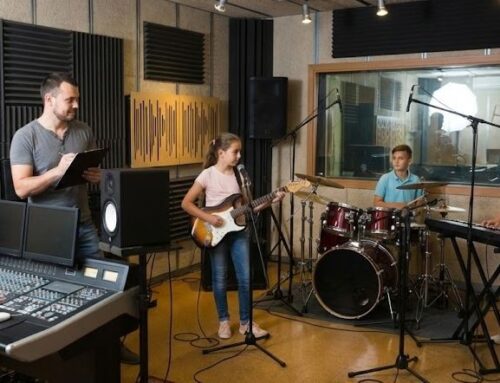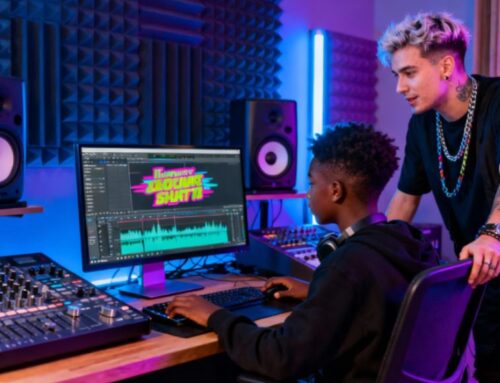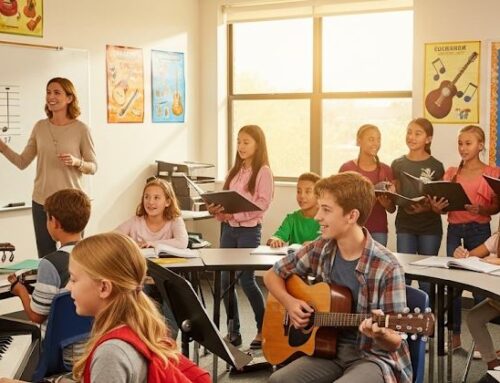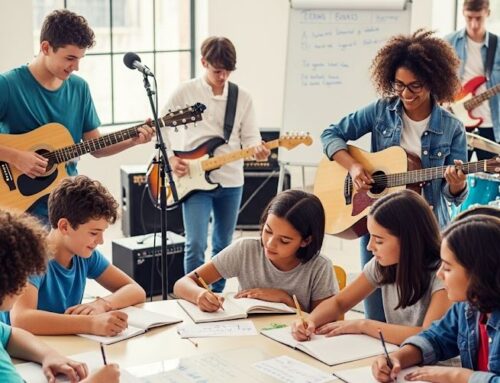In a world dominated by screens and gadgets, the timeless allure of music remains a beacon of creativity and connection for children. Learning music isn’t merely an extracurricular activity; it’s a transformative journey that transcends languages, bridges cultural divides, and provides an inclusive platform for every child to flourish. In this digital age, where personal electronics often vie for attention, the harmonious pursuit of learning music emerges as a compelling antidote—a source of healthy engagement, intellectual enrichment, and emotional development.
Learning Music for Extraordinary Benefits
At Capstone Music in Burlington, children learn music at their own pace. Whether for fun or to train the next concert pianist or rock band vocalist – we are all unleashing the passion for music in us all. The health benefits are amazing!
The Universal Language of Music
Imagine a world where words cease to exist, where cultural differences fade into insignificance, and where emotions find expression through the universal language of music. Melodies and rhythms possess the power to communicate feelings, stories, and experiences that words alone might struggle to convey. Learning music introduces children to this unique language, allowing them to connect with people from diverse backgrounds, fostering understanding and empathy.
Music is a gateway to cultural exploration—a door that swings open to reveal the rich tapestry of global traditions. Through learning different musical styles and instruments, children gain insights into the historical and social contexts that shape the world’s musical heritage. From African drums to Asian strings, from European classical compositions to Latin rhythms, music provides a window into the global community, uniting children in the joy of shared creativity.
Stepping Away from Screens
In an era characterized by the allure of screens, learning music encourages children to step away from their personal electronics and embark on an enriching sensory journey. Engaging with musical instruments, reading sheet music, and practicing melodies demand focused attention and discipline. These experiences counterbalance the fast-paced, instant gratification culture that often accompanies excessive screen time.
Learning an instrument or practicing vocals requires dedicated effort and concentration, cultivating patience and perseverance. As children navigate the complexities of music, they discover the value of hard work, the rewards of consistent practice, and the satisfaction of gradual improvement. This journey builds essential life skills that extend far beyond the realm of music.
Cultivating Cognitive Skills
The benefits of learning music on children’s cognitive development are profound. Research consistently highlights the positive impact of music education on academic achievement, particularly in areas such as language processing, mathematical reasoning, and spatial-temporal skills. Learning to read music notation, discerning rhythm patterns, and understanding musical structures all engage the brain’s neural pathways, enhancing critical thinking and problem-solving abilities.
Moreover, music ignites the brain’s creativity center, fostering imaginative thinking and innovative approaches to challenges. Improvisation, composing melodies, and experimenting with harmonies encourage children to explore uncharted territories of thought and expression. As a result, learning music nurtures the holistic development of young minds, equipping them with the tools to thrive in a rapidly evolving world.
Nurturing Emotional Intelligence
Beyond the cognitive benefits, music education also nurtures emotional intelligence—a skill set that is increasingly valued in personal and professional spheres. Music provides a safe outlet for children to express their emotions, whether it’s the exuberance of a lively tune or the melancholy of a heartfelt melody. By channeling their feelings into musical expression, children develop emotional awareness, self-regulation, and a deeper understanding of themselves and others.
Group musical activities, such as playing in ensembles or participating in choir, cultivate teamwork, cooperation, and mutual respect. Children learn to listen attentively to their fellow musicians, synchronize their playing, and adapt to the dynamics of a collective performance. These experiences forge lasting connections, teaching children the significance of collaboration and the joy of creating something beautiful together.
A Balanced Approach to Technology
Learning music provides a holistic counterbalance to the digital saturation in children’s lives. It encourages them to engage their senses, expand their horizons, and cultivate a profound appreciation for the arts. Rather than entirely disconnecting from technology, children find a harmonious equilibrium—a balance between the allure of screens and the gratification of creating melodies that resonate with their hearts and minds.
For the Health of It – Expose Your Children to the Wonder that is Music
Learning music is an exceptional activity that enriches the lives of children in myriad ways. It transcends language barriers, embraces diversity, and fosters a sense of connection that is unparalleled. By steering children away from the screens and immersing them in the world of melodies and rhythms, music provides a healthy outlet for expression, ignites cognitive growth, nurtures emotional intelligence, and fosters lifelong skills. In an age where the digital pulse of the world can be overwhelming, the melodious path of learning music emerges as an invaluable gift—a symphony of growth, learning, and joy for every child to embrace.






